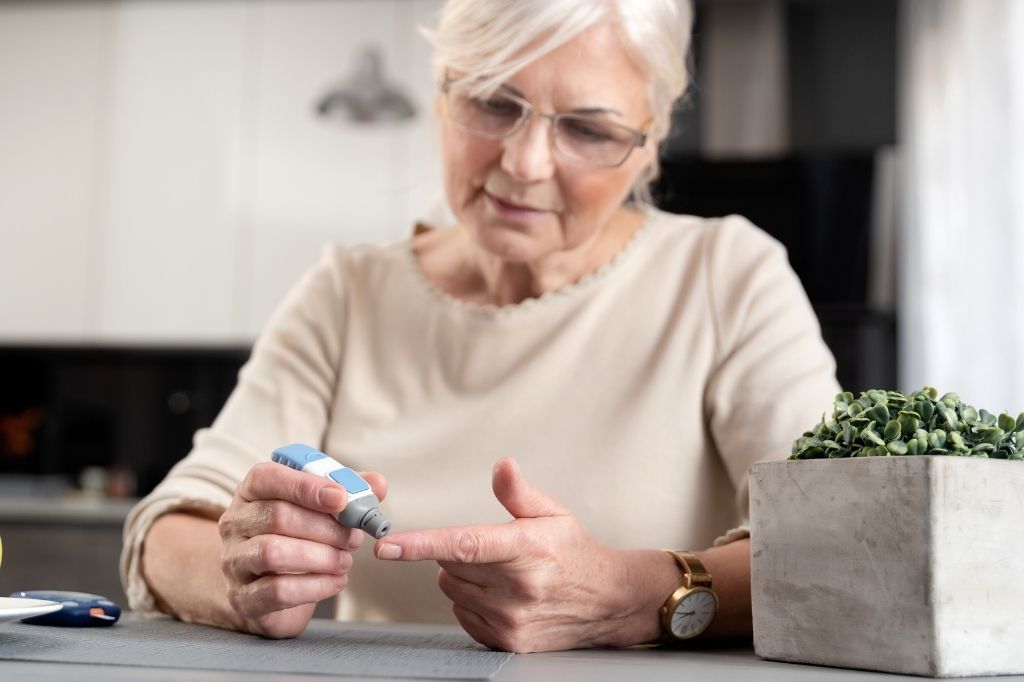How Wound Care Services Help Residents with Diabetes
Diabetes is a dangerous and devastating illness.
It’s been in the news so much that it’s easy to forget that thousands of Americans have lost feet and limbs due to wounds that won’t heal.
Every aspect of treatment and preventative care must be followed in order to ensure you won’t have problems that can arise later for so many with diabetes. This is why we offer the highest level of wound care service to our residents. This ensures that they avoid many of the complications related to the disease.
When you throw into the mix that many Americans have diabetes and don’t realize it, you can understand the importance of skilled nursing care in order to help you maintain healthy blood sugar levels.
Why Is Wound Care So Important for Those with Diabetes?
Diabetes is about much more than blood sugar. It’s about blood circulation.
Because those with diabetes have trouble with blood circulation, wounds and skin sores (called ulcers) heal slowly. In many cases, because circulation problems affect the nerve endings on your feet, it’s very easy to get an injury and be unaware of it.
This is why those with diabetes must be diligent and check their feet on a regular basis.
The nerve damage associated with diabetes is called diabetic neuropathy. While it can affect nerves anywhere in your body, it’s most often seen in the legs and feet.
What Are the Signs of Diabetic Neuropathy?
These can include numbness and pain. In some cases, the symptoms may be mild, but in others, they can cause a substantial amount of pain.
It can also affect your blood vessels and your heart.
Diabetic neuropathy is a condition that should be taken seriously.
Foot Ulcers and Other Wounds Can Lead to Amputation
Because those with diabetes have issues with blood circulation, a foot ulcer may take a long time to heal. Therefore, it can cause extensive problems to the delicate tissue that comprises the area.
If the wound does not heal, and the infection progresses, amputation may be needed.
If you have diabetes and have any of the following conditions, you may be at greater risk of having an amputation for a non-healing wound:
- Smoking
- Calluses or corns
- Previous foot ulcers
- Poor circulation
- High blood sugar
- Foot formation deformities
- Kidney disease
- High blood pressure
- Vision problems
Signs and Symptoms of Diabetes
As we mentioned earlier, it’s possible to have diabetes and not realize it. This is because many of the symptoms start out very mild. These symptoms include:
- Increased thirst
- Having to go to the bathroom a lot
- Hunger
- Fatigue
- Blurry vision
- Tingling in your hands or feet
- Cuts or bruises that are slow to heal
How Do You Know If You Have Diabetes?
First, an annual fasting blood sugar reading should be a part of your annual physical. This will let your physician know how your body’s insulin is working.
Second, if you’re found to have prediabetes, you can still implement healthy lifestyle changes that can prevent you from developing diabetes.
Your fasting blood sugar should be less than 100. Anything from 100 to 125 indicates prediabetes. If your blood sugar is 126 or over, you have diabetes.
Another important number is your A1C. This provides a measurement of your blood sugar from the last three months. If you have an A1C level of 6.5% or higher, you have diabetes.
If you’re showing any of the signs and symptoms listed above, we encourage you to speak to your doctor. If you’re not having an annual physical, we encourage you to do so and express any concerns you have to your physician.
Would Care Services at Brook Stone: The Best in the Region
It’s not just enough that we offer extensive wound care services: We’re recognized as the leader among all skilled nursing facilities in our area.
We believe in providing more than a room—we believe in providing a relaxing, caring community.
Let Brook Stone help care for the ones you love so you can step back into your role as son, daughter or spouse. Contact us today for information on a virtual tour. Hurry, our spaces fill quickly.

